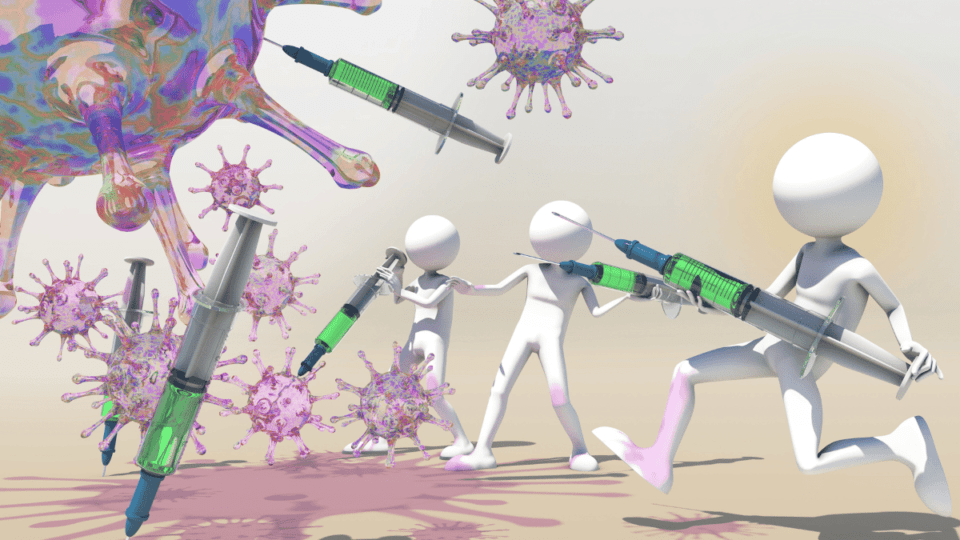Serology is the study of antibodies in blood serum. Antibodies are proteins that are produced by the body’s immune system in response to an infection or vaccination. They help the body fight off infection by binding to and neutralizing harmful substances, such as viruses and bacteria.
There are many different types of antibodies, each of which is specific to a particular antigen. An antigen is a substance that triggers the production of antibodies. When an antibody binds to its antigen, it can help to neutralize the antigen, preventing it from entering the body, or marking it for destruction by other immune cells.
Serology tests are used to detect the presence of antibodies in the blood. These tests can be used to diagnose infection, determine whether someone has been vaccinated, or monitor the course of an infection. Serology tests can also be used to research the immune response to infection and to develop new vaccines.
What is an antibody?
An antibody is a protein that is produced by the body’s immune system in response to an infection or vaccination. Antibodies are part of the body’s humoral immune response, which is the immune response that is mediated by antibodies in the blood.
Antibodies are produced by B cells, which are a type of white blood cell. B cells are activated when they encounter an antigen, which is a substance that is foreign to the body. Once a B cell is activated, it will divide and produce many copies of itself. These copies will then mature into plasma cells, which produce antibodies.
Antibodies are Y-shaped proteins that have two identical heavy chains and two identical light chains. The tips of the Y-shaped antibody bind to the antigen. The binding of an antibody to its antigen can trigger a number of different immune responses, including:
- Neutralization: The antibody can bind to the antigen and prevent it from entering the body.
- Opsonization: The antibody can coat the antigen, making it easier for other immune cells to destroy it.
- Complement activation: The antibody can activate the complement system, which is a group of proteins that can kill bacteria and other harmful substances.
What is serology?
Serology is the study of antibodies in blood serum. Blood serum is the clear fluid that remains after blood has clotted. Antibodies are found in blood serum, so serology tests can be used to detect the presence of antibodies in the blood.
Serology tests are used to diagnose infection, determine whether someone has been vaccinated, or monitor the course of an infection.
According to Sharon Fellner, a medical technologist at Baton Rouge General Hospital, serology tests can also be used to research the immune response to infection and to develop new vaccines.

“Serology tests play a crucial role in detecting antibodies in our bodies, providing insight into our immune response to various diseases. As medical technologists, we rely on these tests to aid in diagnosing and treating patients, ultimately helping improve their overall health and well-being.” – Sharon Fellner, Medical Technologist at Baton Rouge General Hospital.
There are many different types of serology tests, each of which is designed to detect the presence of a specific antibody. Some common serology tests include:
- The Venereal Disease Research Laboratory (VDRL) test: This test is used to detect syphilis antibodies.
- The Rapid Plasma Reagin (RPR) test: This test is also used to detect syphilis antibodies. The RPR test is a rapid test that can be performed in a doctor’s office.
- The ELISA test: This test can be used to detect a wide variety of antibodies, including antibodies to viruses, bacteria, and parasites.
- The Western blot test: This test is a more sensitive test than the ELISA test. It can be used to detect antibodies to specific proteins.
What are the benefits of serology tests?
Serology tests have a number of benefits, including:
- They can be used to diagnose infection.
- They can be used to determine whether someone has been vaccinated.
- They can be used to monitor the course of an infection.
- They can be used to research the immune response to infection.
- They can be used to develop new vaccines.
What are the limitations of serology tests?
Serology tests have a number of limitations, including:
- They can only detect antibodies, not the actual infection.
- They can only detect antibodies that are present in the blood.
- They can be affected by a number of factors, such as pregnancy and autoimmune diseases.
Conclusion
Serology is a valuable tool for the diagnosis, treatment, and prevention of infection. Serology tests can be used to detect the presence of antibodies in the blood, which can be used to diagnose infection, determine whether someone has been vaccinated, or monitor the course of an infection.
Serology tests can also be used to research the immune response to infection and to develop new vaccines.
Special thanks to Sharon Fellner, Medical Technologist at Baton Rouge General Hospital. you can follow them on social media.


